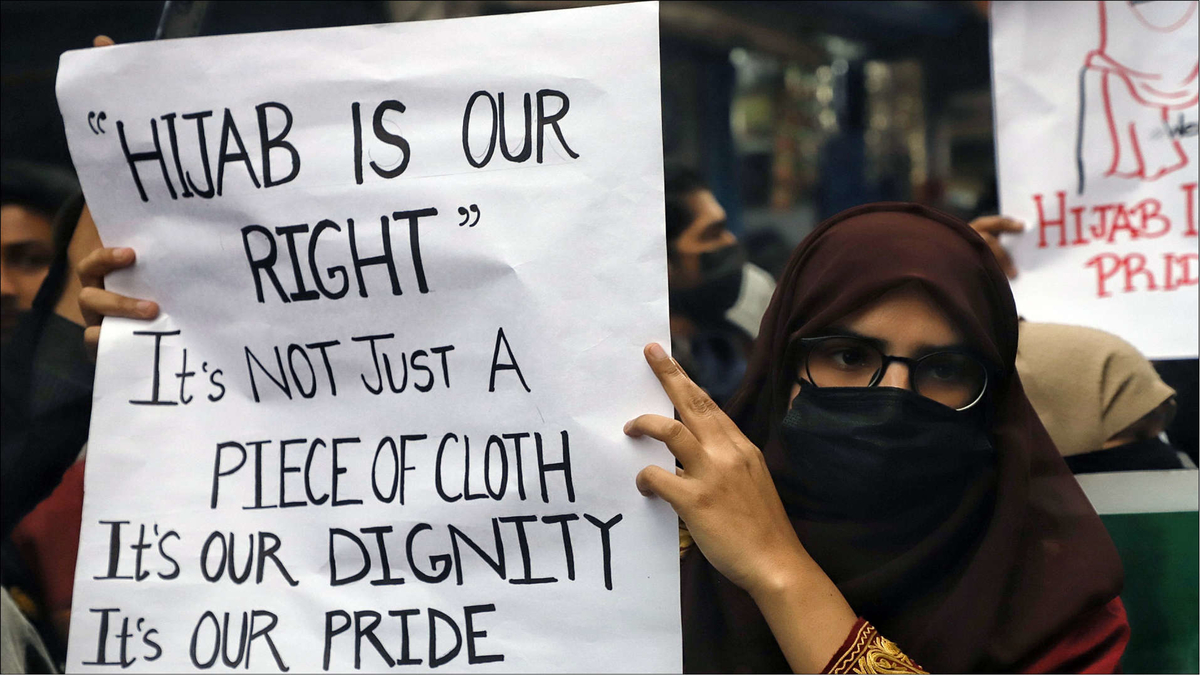From UPSC perspective, the following things are important :
Prelims level: Na
Mains level: Historical evolution of the purdah system in various parts of the world, including India

Central Idea:
The article focus into the ongoing discourse around the hijab/veil, examining recent political events in India and the global conversation on the subject. It raises questions about the right of Muslim women to choose their attire, the role of the state in regulating religious clothing, and the intersection of Islamic principles with government policies. The central argument posits that criticisms of the hijab often lack genuine concern for gender equality, being influenced by historical Western colonial biases, and mirroring the majoritarian agenda of Hindutva.
Key Highlights:
- Karnataka Chief Minister’s stance on the hijab issue is presented as a case of vote bank politics by the Congress, reinforcing BJP’s accusations.
- The global debate involves Western leaders advocating for bans, while Muslim women protest against enforced veiling in countries like Iran.
- The article questions the Western perception of Islam’s treatment of women, attributing bias to a colonial mindset.
Key Challenges:
- Balancing individual freedom of choice with state regulations on religious attire.
- Navigating the intersection between Islamic provisions and state policies.
- Addressing the influence of Western colonial perceptions on the discourse around Muslim women’s rights.
Key Terms:
- Hijab/Veil: Islamic head covering worn by some Muslim women.
- Hindutva: Ideology advocating the cultural and political dominance of Hindus in India.
- Vote Bank Politics: Political strategy to gain support from specific religious or ethnic groups.
- Colonial Mindset: Biased perspectives influenced by historical colonial experiences.
Key Phrases:
- “Vote bank politics” – Refers to the alleged manipulation of Muslim sentiments for political gain.
- “Western colonial project” – Describes historical biases influencing perceptions of Islam.
- “Gender freedom” – The concept of freedom regarding gender roles and choices.
Key Quotes:
- “For Europe, Islam was a lasting trauma.” – Edward Said, highlighting the historical impact of colonialism on Western perceptions of Islam.
- “There is no inherent value placed on man and woman…no pre-ordained system of hierarchy.” – Amina Wudud, on interpreting Islamic provisions for gender equality.
Key Statements:
- The Congress government’s indecision on the hijab issue is portrayed as an example of vote bank politics.
- The author suggests a parallel between the Hindutva majoritarian agenda and Western colonial objectives in their disregard for equal rights.
Key Examples and References:
- French President Nicolas Sarkozy’s push for a total ban on the Islamic veil in 2010.
- British Prime Minister Boris Johnson’s controversial remarks on Muslim women wearing burqas in 2019.
- Examples of successful Muslim women in India, such as Parveen Babi and Zeenat Aman, who did not conform to hijab norms.
Key Facts and Data:
- Historical evolution of the purdah system in various parts of the world, including India.
- Instances of Western leaders advocating for bans on the Islamic veil.
Critical Analysis:
- The author critiques the perceived bias in Western views on Islam, attributing it to a colonial mindset.
- The alignment of Hindutva’s majoritarian ideology and Western colonial objectives is questioned.
- The article challenges the sincerity of concerns about gender equality by highlighting selective concerns based on political agendas.
Way Forward:
- Advocate for a nuanced understanding of cultural practices and religious choices.
- Encourage open dialogue between religious communities and policymakers to address concerns.
- Emphasize the importance of respecting individual choices while ensuring a balance with societal norms.
Get an IAS/IPS ranker as your 1: 1 personal mentor for UPSC 2024

